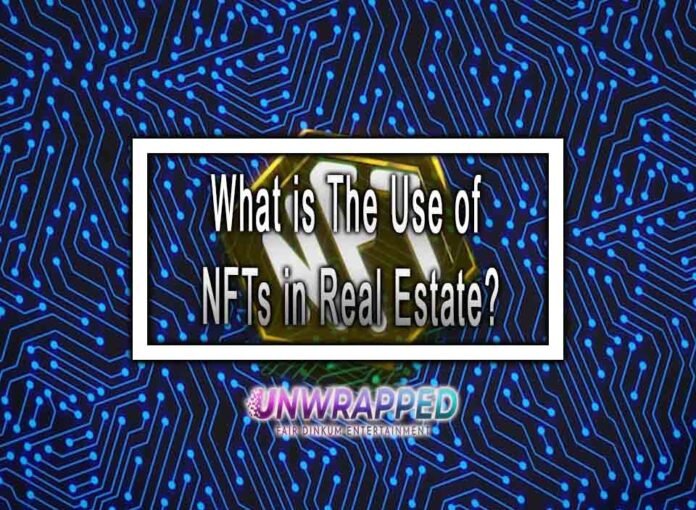Using sidechains, developers can create their version of blockchain applications tied to their created protocols. An excellent example of this can be seen with the ERC20 token standard and Ethereum’s smart contract ecosystem, which was the first to implement such standards. Check this Website to get better features while trading in non-fungible tokens.
Other blockchains are primarily focused on transactions and not building new applications or platforms. These include Bitcoin, Litecoin, Dash, etc., and their primary purpose is to move digital assets from one holder to the next. The types of tokens issued on each blockchain differ, with some designed for a specific purpose (ERC20 tokens) while others are more general-purpose (Bitcoin).
NFTs can also be bought, sold and traded on an exchange, making it easy for investors looking to get exposure to real estate without taking on personal legal or financial risk. Regardless of how you approach investing in NFTs, there is no doubt that their use will reshape the way property ownership and investment are made digitally and physically for years to come. The first step is understanding what an NFT can do that other blockchain-based titles can’t.
What do they offer in exchange for your trust and security?
Like a traditional title, an NFT has a unique identifier which allows you to trade one (for example, in the form of tokens) for another. It allows you to sell your house and purchase another or have them share time as tenants. An NFT also is assigned by its creator – it is possible by anyone willing to transact with the creator and whether they are physically present. It allows for zero net transfer fees as a traditional title requires the transferor to be paid for the time and effort of transferring their title to you.
The transaction process is also much quicker because it doesn’t rely on third-party authorities or intermediaries who can slow down this process. Since an NFT is tied to the blockchain, it is required that the transaction takes place in an open, transparent and trustworthy manner — all while maintaining anonymity between parties involved.
NFTs can also be used with smart contracts, ensuring conditions are met before any transfers occur. For example, an NFT could be sold only to buyers approved by the seller or owners actively negotiating a sale with the vendor.
How do you know that your NFT is secure?
An NFT must be 100% secure and immutable as it has been created through complex cryptographic algorithms, controller nodes and ASIC mining. It ensures that no one can tamper with your token. It also gives you peace of mind as you don’t have to worry about someone else using your property because it will remain yours.
Smart contracts with NFTS in real estate
The ability to fulfil intelligent contracts is also a great advantage offered by NFTs, as you can use it as collateral with a lender. After all, intelligent contracts execute transactions according to set terms, and an NFT can be sold so that the lender retains its rights to the property if the buyer defaults on loan payments. In addition, it allows you to enjoy lower interest rates because your house can act as collateral for the debt. Smart contracts also ensure the money you receive from the lender is never paid to a third party and remains in escrow until the agreed-upon terms are reached.
The transparency offered by intelligent contracts allows all parties to interact directly and safely, removing third parties that may be prone to failure due to human error or their interest in the outcome of a transaction. Failure of these parties can cause delays or even work against your interests, which is why using intelligent contracts for transaction settlement with an NFT is beneficial. Users can also use them for land registry and property rights record management.
How can real estate agents use NFTS?
Real estate agents can use NFTs to increase their sales and profits. These tokens can then be used to purchase a new property or business, and investors can gain exposure to real estate without taking on the financial risk because the value of an NFT is never tied to the real estate market. Real estate agents also have access to a global market, which means they have access to more resources and opportunities than a local market.
Furthermore, NFTs provide an incentive for sellers and buyers alike when offering real estate:
For sellers: The ability to create multiple tokens representing their property, each having its unique features that appeal to different buyers. It could be the case when a seller wants to sell multiple properties or when they want to sell a property that has been recently renovated. i
For buyers: The ability to obtain an NFT under specific conditions (such as meeting a financing condition before selling that property).
NFTs represent a novel way of holding and transacting real estate without the risks or costs associated with traditional systems. However, to use it, you must have experience with blockchain-based software and smart contracts to transact efficiently. NFTs are currently in an early stage of development and have only begun appearing in other locations such as Singapore and Nigeria.











